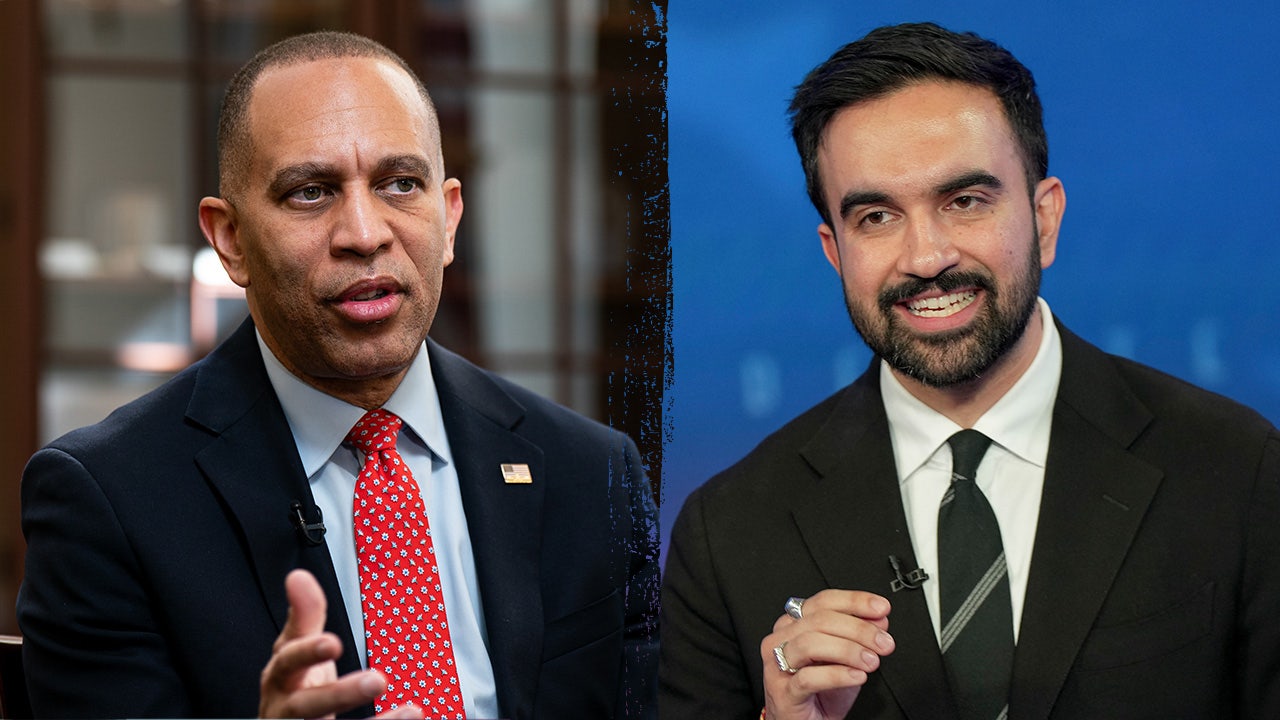Jeffries’ Late Endorsement: A Calculated Surrender
- Hakeem Jeffries delayed, then endorsed Zohran Mamdani as early voting began in New York.
- Republicans see the move as proof of a leftward drift and use it to paint Democrats as fractured.
- Jeffries’ hesitation exposed intra-party tensions between centrists and the far left.
House Minority Leader Hakeem Jeffries dangled his decision for months, answering reporters with gems like “Stay tuned.” That coyness mattered because it fed a narrative: New York Democrats are split and their leaders are calculating which faction to appease.
Jeffries eventually said, “I have not refused to endorse. I have refused to articulate my position and I will momentarily, at some point in advance of early voting.” Then, true to the tease, he backed Zohran Mamdani as early voting began on Saturday.
Jeffries framed his decision around city issues, praising Mamdani: “Zohran Mamdani has relentlessly focused on addressing the affordability crisis and explicitly committed to being a Mayor for all New Yorkers, including those who do not support his candidacy.” But Republican critics wasted no time using the endorsement to underline a different message.
House Speaker Mike Johnson put it bluntly: “What we’re witnessing is truly the end of the Democratic Party as we’ve known it.” He argued the move proves that moderates have been squeezed out of a party increasingly led by its left flank.
Johnson went further, saying, “They decided to save their own skin that they had to endorse the Marxist Mamdani,” and accused Democrats of pandering to avoid primary threats. That’s the GOP playbook now: frame Mamdani as a gift to Republican messaging and a warning to swing voters.
Jeffries defended his process, noting he had conversations with Mamdani and that he “has not refused to endorse” but needed time to evaluate and consult leaders like Rep. Yvette Clarke. He also admitted he wasn’t “someone that I knew prior to him receiving the Democratic nomination,” signaling unfamiliarity that fueled the delay.
For Democrats, the calculus was raw and simple: refuse to endorse and risk a public schism, endorse and risk alienating moderates and pro-Israel voters. Republicans predictably pounced, saying the endorsement proves what they’ve been shouting from the rooftops.
Critics on all sides acknowledged the endorsement likely won’t decide the mayoral race, but it does reveal a party wrestling with identity. Jeffries chose unity over factional warfare, but that unity comes at the cost of handing Republicans a vivid talking point about a party in turmoil.
In politics, optics matter as much as policy, and Jeffries’ long shadow of hesitation will be used by Republicans to argue Democrats are fractured and moving left. Whether that argument lands with New York voters remains uncertain, but the headline is clear: the Democratic infighting moment was real and politically costly.


Leave a Comment